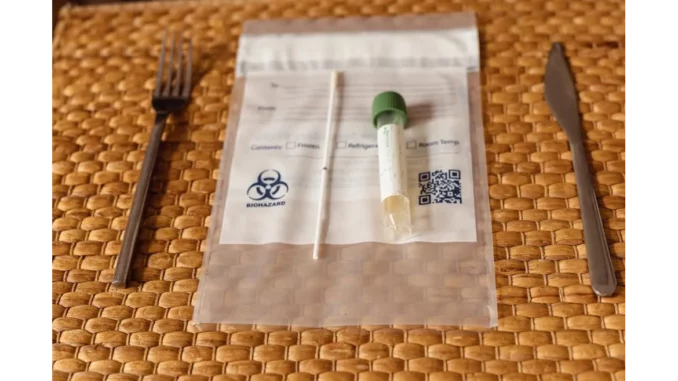
In recent developments, the UK Health Security Agency (UKHSA) has confirmed the fourth case of the mpox Clade Ib strain in the United Kingdom. This emerging variant, known for its increased transmissibility, has prompted a renewed focus on public health preparedness, surveillance, and response strategies. This article seeks to provide a comprehensive overview of the current situation and explore its broader implications for public health.
Mpox, a viral zoonotic disease caused by the mpox virus, is a member of the Orthopoxvirus genus, closely related to the virus responsible for smallpox. Although less severe than smallpox, mpox remains a significant public health concern. It is endemic to certain regions in Africa, where it has been circulating for years, and is primarily transmitted through close contact with infected individuals or animals, as well as contact with contaminated materials. The Clade Ib variant is a more recent development, distinct from Clade II which has been present in the UK since 2022. Clade Ib has been primarily found in the Democratic Republic of Congo, with recent reports emerging from several other countries, including Burundi, Rwanda, Uganda, Kenya, Sweden, India, and Germany.
In the UK, the UKHSA confirmed the presence of four cases of Clade Ib mpox as of 7 November 2024, all originating within a single household. The initial case was identified on 30 October 2024, in an individual who had travelled to Africa, where this particular strain is prevalent. Subsequent cases were detected among household members, illustrating the virus’s potential for rapid transmission through close contact. The affected individuals are currently receiving specialist care at Guy’s and St Thomas’ NHS Foundation Trust in London. Despite these cases, the UKHSA has reassured the public that the overall risk to the UK population remains low, thanks to swift response and containment measures by health authorities.
The UKHSA, in conjunction with the NHS and other partner organisations, has adopted a proactive stance in addressing the emergence of Clade Ib mpox. Extensive planning and preparedness efforts have been implemented to ensure healthcare professionals are adequately equipped to manage potential outbreaks. These measures include rigorous testing, contact tracing, and vaccination strategies. Contacts of confirmed cases are being closely monitored and offered vaccination as necessary. The UK benefits from an existing stockpile of mpox vaccines, with additional doses being procured to support a potential routine immunisation programme. This proactive approach is vital in curbing further transmission and ensuring public safety.
The emergence of Clade Ib mpox in the UK is indicative of a broader global pattern, with the World Health Organization (WHO) declaring a public health emergency of international concern due to the rapid spread of this strain. This situation highlights the importance of international collaboration, as infectious diseases do not respect national borders. The UK is actively working with international partners to support affected countries, sharing data, resources, and expertise to bolster global health security. This scenario underscores the critical need for global cooperation in addressing infectious diseases and safeguarding public health.
The detection of Clade Ib mpox in the UK serves as a pertinent reminder of the persistent threat posed by emerging infectious diseases. While the immediate risk to the UK population remains low, ongoing vigilance and preparedness are paramount. Public health authorities must continue to operate in an agile and responsive manner, leveraging surveillance, testing, and vaccination to mitigate the impact of this and other contagious strains. On a global scale, international collaboration is essential in confronting the challenges posed by Clade Ib mpox. By working together, nations can strengthen their health systems and enhance their capacity to respond to emerging threats. As the situation unfolds, it is crucial for individuals to remain informed and adhere to public health guidance, thereby ensuring the safety and well-being of communities both in the UK and worldwide.


Be the first to comment